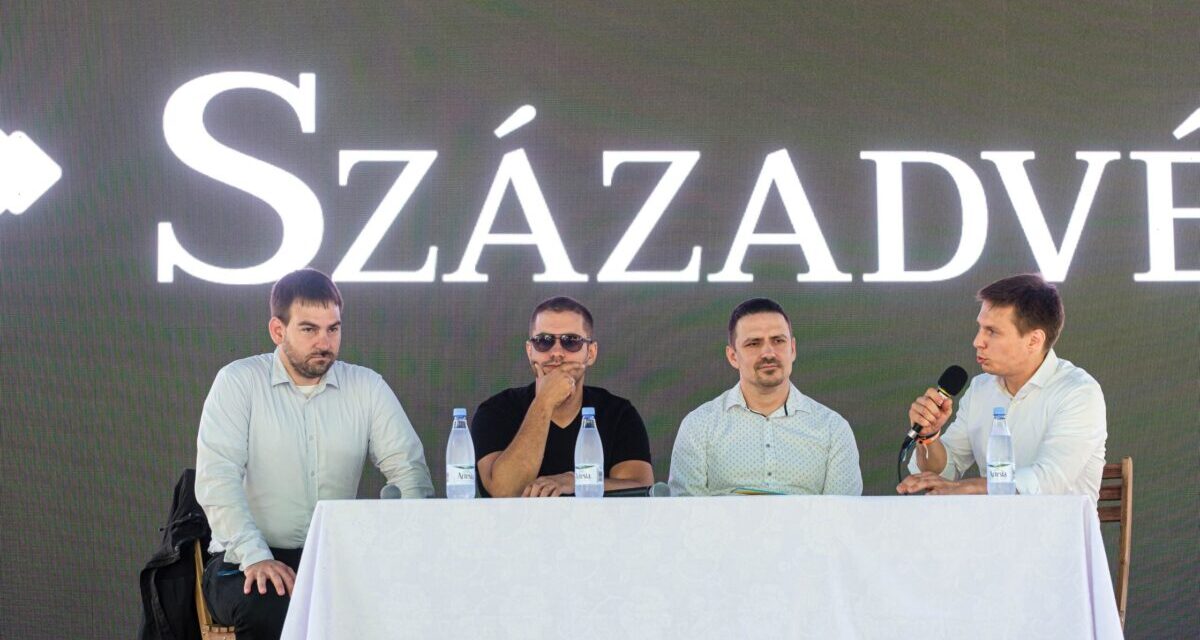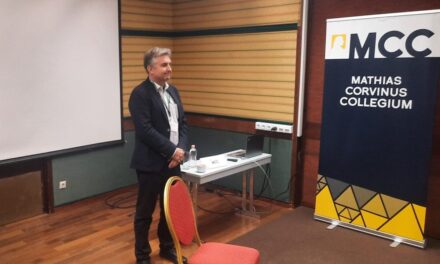72 percent of the population of the European Union trusts the EU, but at the same time there is a lot of dissatisfaction with the bureaucracy in Brussels - it was said at the round table discussion on the 2024 survey of the Századvég Europe project held on Thursday in Tusnádfürdő.
Attila Demkó, MCC's security policy expert, assessed: the problem with the EU is not itself, it is a good project, the question is in which direction the union will continue. The trust is there, and it should remain, he underlined.
At the same time, if it goes in the direction of a social experiment like the one seen in Sweden, then a good project can easily turn into a bad one, he believed. The Hungarian nation and the majority of the European peoples are in a positive position, the EU is such a value that it must be preserved at all costs, he concluded.
What happened in the European Parliament, that the Patriots for Europe faction was cordoned off, is an extremely serious development, the opinion of 18 million people was not taken into account.
When they wash away, flexibly manage their own rules, it leads to the fact that no one will respect them - he warned and asked the question how it will feel if, after the next right-wing victory, the socialist faction will not get positions. Then there would only be great outrage, he noted. He stated: there is no such thing as a first-rate, mainstream or second-rate European, which is extremely dangerous for the European project.
Csaba Faragó, head of Századvég's foreign relations, pointed out that support for the European project is outstanding among EU citizens everywhere, but at the same time, dissatisfaction with Brussels institutions and bureaucracy is especially high.
During the survey, 35 percent of the respondents said that the EU leadership is not corrupt, while 52 percent consider the Brussels elite to be corrupt.
Olivér Hortay, the director of the Századvég research institute, pointed out that it is worth making a sharp distinction between the union as a project and the institutional system of the union itself.
To the question of how much the Brussels elite and institutional system take into account the interests of individual countries, the majority answered no. People are also extremely dissatisfied with the handling of the economic situation - he emphasized, noting that the European Commission did a lot to create and nurture this negative opinion. Everything must be done in the future to steer the European Commission in such a direction that its operation approaches people's expectations, he underlined.
He also touched on the fact that the general mood is extremely bad, the subjective economy was not so negative even during the Covid epidemic or the closures.
The data on energy poverty show a very rough deterioration, he pointed out, adding that today every fourth resident in the EU is struggling with heating and payment difficulties. In the EU, the proportion of those who cannot heat their homes properly was 23 percent, while 25 percent in the EU and 14 percent in Hungary struggle with payment problems.
Regarding responsibility, 64 percent of respondents agreed with the statement that the energy crisis in Europe is partly the result of the European Commission's faulty energy policy.
Olivér Hortay pointed out: in the next period, it is essential that the EU implement drastic changes in the field of energy and climate policy.
Csaba Faragó said: it is unfortunate that a project like the EU has degenerated to the point where there will be countries that are happy because they benefit more from the joint venture, while others feel that they are at a disadvantage. One of the reasons for this is that the EU resources are cut back citing such and such reasons, and they are even permanently lost for political reasons, he noted.
Attila Demkó said that many expectations regarding the EU were fulfilled, the organization was the engine of the regional catch-up.
At the same time, there are many things that shock, especially the public opinion of this region. One of them is that it is not transparent what is happening in Brussels, he pointed out, adding that even he does not understand exactly what should be done to release the blocked funds. And if this is used as coercion to change a country's policy, that is a problem, he concluded.
He considered the biggest tragedy to be that those who are now mostly in favor of a war solution in relation to Ukraine are the main ones responsible for the fact that the Union's defense capability has been degraded.
Olivér Hortay added: the support for arms transport has decreased in the past year, people do not agree with this. Sending soldiers is a distinct red line in the eyes of the people, no one wants it, yet there has been an intense debate about it in the recent period in the Union.
He added that they do not consider the Russian-Ukrainian war to be worrying from a security policy point of view, but rather dangerous for their own existence, and there are a majority everywhere who see it as harmful to their own country.
Attila Demkó highlighted the issue concerning China: the complete severance of relations would not be right, we would be shooting ourselves in the foot. At the same time, he agreed that production in certain sectors should be brought back from China, and he mentioned ammunition production and the defense industry as examples.
According to Olivér Hortay, the European Commission is playing with fire, and the consequences could be extremely serious.
China is one of the most important foreign trade partners, the Europeans see the dangers very clearly and there is no legitimacy to the Chinese trade conflict.
The aim of the 2024 survey of the Europe Project research series was to map public attitudes regarding the most significant public issues affecting the continent; they asked thirty thousand people in thirty countries.
MTI
Cover photo: András Hajdú, research professor at the Political Science Workshop of the Mathias Corvinus Collegium (MCC), Gábor Megadja, intellectual historian of Századvég, director of the research institute, Csaba Faragó, head of external relations of Századvég and Olivér Hortay, director of the research institute of Századvég (bj)
Source: MTI/Nándor Veres













